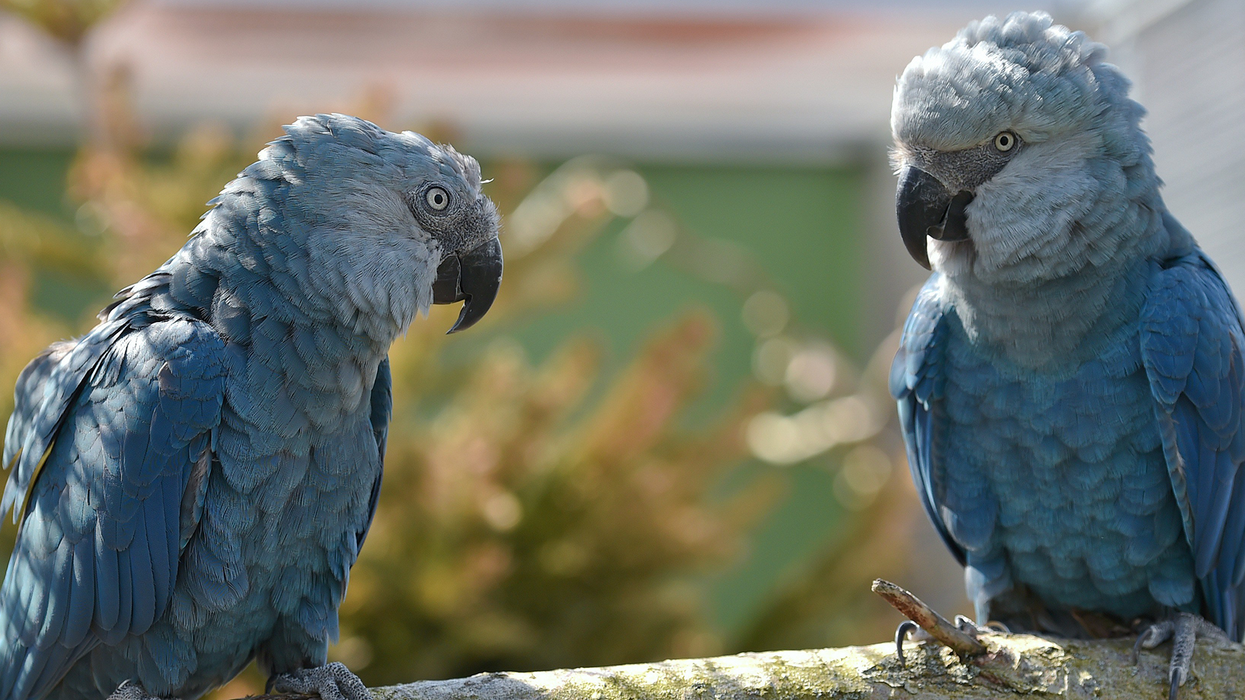News
Jack Webb
Sep 11, 2018

Picture:
PATRICK PLEUL/AFP/Getty Images
We all know that humans are most likely the cause of a large number of animal extinctions that happen through the years, and it would seem we've claimed another.
The blue Spix Macaw, the beautiful bird that inspired the animated film Rio, are thought to have become extinct in the wild.
Birdlife International published a new study in the journal Biological Conservation and used statistics to see whether or not 51 scarcely-seen bird species have gone extinct over the past decade.
Tragically, they have found that at least eight bird species should be added to the list of confirmed or suspected extinctions.
Among these were the alagoas foliage-gleaner, cryptic treehunter and the poo-uli, which all appear to be entirely extinct now with no individuals remaining in the wild or captivity. Whereas the blue Spix Macaw is now suspected to be extinct - as the species hasn't been sighted in a long time.
Speaking to IFL Science, Birdlife International scientist and lead author of the paper Suart Butchart said:
Human activities are the ultimate drivers of virtually all recent extinctions.
It is certainly the case that the rate of extinctions on continents is higher than ever before. And that the rate will continue to increase without concerted conservation efforts.
Generally, bird extinction has struck mostly on small isolated islands and while hunting plays a big part, it's more often down to an invasive species.
Nowadays, more often than not, birds species are becoming extinct thanks to deforestation and massive loss of habitats in Brazil and other South American forests.
The results of this research will be used by Birdlife International to attempt to inform and update the IUCN Red List, which is a guide for animal conservation status, used often to inform animal-related policy.
Another great feat of human achievement arrogance.
More: These are the mammals we could say goodbye to in 2018
More: World's rarest great ape on the brink of extinction, study reveals
Top 100
The Conversation (0)













